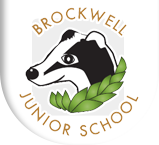How do you know who you are unless you know where you have come from? How can you tell what is going to happen, unless you know what’s happened before? History isn’t
just about the past. It’s about why we are who we are – and about what’s next.”
Tony Robinson
The study of history involves firing pupils’ curiosity, and engaging them in investigating
questions about people and events in the past in order to enable them to better
understand their lives today and for a future as more informed and enlightened citizens.
History helps them to understand the complexity of people’s lives, the process of change,
the diversity of societies and relationships between different groups, as well as their own
identity and the challenges of their time. Through the study of history, pupils become
detectives, finding and evaluating evidence, and they develop a wide range of critical
thinking skills, which enable them to understand the contested nature of knowledge and
to distinguish between ‘fact’ and subjectivity when it comes to reaching conclusions and
making judgements about the past. What they learn can influence their decisions about
personal choices, attitudes and values.
What will children say by the end of Juniors?
History is a vital part of the planned curriculum.
History fascinates us, and makes us eager to learn more.
I can research independently; history supports me in becoming a responsible citizen with a set of core values.
By the end of the key stage we evaluate whether children have reached end points within the progression map (below) and:
Been exposed to a range of research tools, multimodal texts and high quality resources.
Developed specific historical knowledge through the four modes of learning and core learning skills.
Acquired subject specific concepts and skills; such as chronology, continuity and change, and cause and effect.
Learned from the mistakes and successes of significant figures and monarchs from the past.
Benefited from first hand experiences – visits, role play, guest speakers ( e.g.
Holocaust victim) and enrichment days.
Links for teaching staff to HISTORY ASSOCIATION HERE
